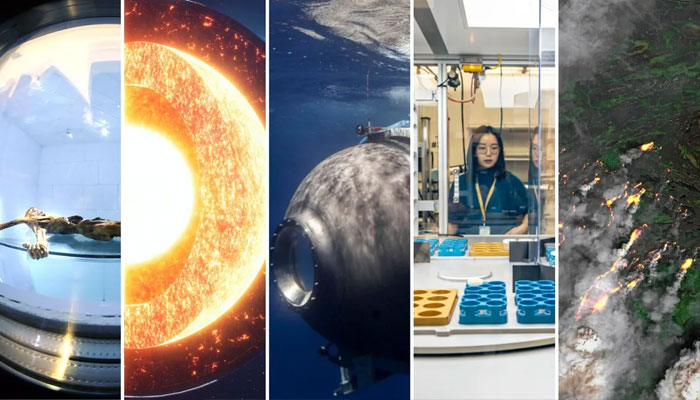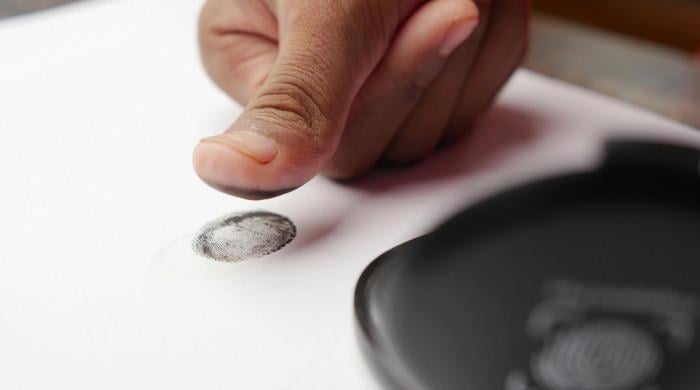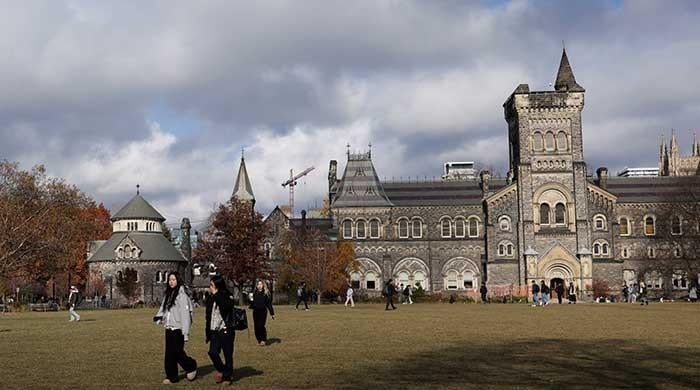2023's top 21 sci-tech marvels include Einstein tiles, cosmic shockwaves, reversal of Earth's core
AI's growing influence and India's successful moon mission also also on the list
January 01, 2024

From groundbreaking space missions to revolutionary advancements in microelectronics, these 21 developments left an indelible mark on the year 2023.
As we delve into each discovery, it's worth contemplating which ones will continue shaping our future in 2024.
1. Implosion of Oceangate's Titan submersible
June witnessed the dramatic disappearance of OceanGate's Titan submersible during a two-mile dive to the Titanic shipwreck. The subsequent discovery of a debris field confirmed a catastrophic implosion, tragically claiming the lives of all five passengers.
2. Canada's record wildfires
In June, Canada grappled with an unprecedented wildfire season, surpassing 45 million acres burned by October. Smoke plumes from these fires drifted into the United States, raising concerns about the escalating impact of climate change.
3. 'Apocalypse' Wildfire in Lahaina, Hawaii
Hawaii experienced a devastating blaze driven by winds from Hurricane Dora, resulting in over 100 confirmed deaths and widespread destruction in Maui County, particularly Lahaina.
4. Rising UFO discussions in government
UFO sightings and alien conspiracies dominated headlines, with over 350 Unidentified Aerial Phenomena reported by the U.S. Office of the Director of National Intelligence. Government officials and self-proclaimed experts fueled discussions about extraterrestrial encounters.
5. Northern Lights to be strongest in 20 years
September brought celestial excitement as scientists predicted the highest Northern Lights activity in two decades, expanding the geographical range where this spectacular event could be witnessed.
6. COP28 climate summit in Dubai
Global leaders convened in Dubai for COP28, addressing climate change amidst escalating natural disasters. The Declaration to Triple Nuclear Energy initiative aimed to achieve net-zero greenhouse gas emissions by 2050, sparking both support and criticism.
7. Surge in Wegovy demand
Wegovy, a weight-loss drug using semaglutide, gained widespread popularity, causing shortages in the US. This injection, mimicking a natural hormone, revolutionised weight management.
8. AI's growing influence
AI marked significant milestones, with ChatGPT gaining attention as the fastest-growing application. Advancements in mind-reading AI, robots, and space and health technologies showcased the expanding capabilities of artificial intelligence.
9. India's Chandrayaan-3 lands on moon
India achieved a historic milestone with the Chandrayaan-3 moon landing, exploring the lunar south pole and emphasising cost-effectiveness in space missions.
10. Next-Gen microelectronics from Berkeley Lab
Berkeley Lab's Center for High Precision Patterning Science promised faster, more potent chips, revolutionising microelectronics and enhancing U.S. capabilities in chip production.
11. The Launch of the autonomous lab (A-Lab)
Berkeley Lab introduced the A-Lab, an automated facility using AI-guided robots to accelerate material development, addressing traditional testing bottlenecks.
12. Bacteria that can 'gobble' up plastic
Researchers identified bacterial species capable of efficiently breaking down plastic, offering potential solutions to the global plastic pollution crisis.
13. Ötzi the Iceman's new ancestry revealed
Technological advancements revealed new insights into Ötzi's appearance, challenging previous misconceptions and highlighting the role of modern technology in understanding historical figures.
14. Discovery of 'Einstein' tile
Computer scientists unveiled an aperiodic monotile with 13 sides, a breakthrough with practical applications in material science.
15. Earth's inner core's reversal
Geoscientists proposed the reversal of Earth's solid inner core rotation, linking variations to changes in geophysical observations and emphasising the planet's dynamic nature.
16. A 310-million-year-old ancient spider fossil
The discovery of an ancient spider fossil in Germany provided insights into Paleozoic-era spider species, showcasing the significance of archaeological advancements.
17. Orcas break rudders, sink ships
Orcas off the coasts of Portugal and Spain garnered attention for their interactions with ships, breaking rudders and prompting investigations into the mysterious behavior.
18. Mysterious undersea civilisation
Research demonstrated the importance of magnetic fields in understanding submerged civilisations like Doggerland, offering new perspectives on ancient landscapes.
19. JWST observes massive kilonova explosion
Astronomers, utilising the James Webb Space Telescope, observed an extraordinary burst of gamma rays, providing insights into kilonovae and the production of massive elements in the universe.
20. Supercapacitor made from ancient materials
MIT researchers developed a supercapacitor using ancient materials—cement and carbon black—offering cheap and scalable energy storage for renewable sources.
21. Scientists record shockwaves in the cosmic web
Astronomers observed shockwaves in galaxy clusters and filaments, providing the first evidence of









